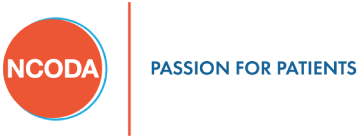In this second article of our accreditation series, we highlight how NCODA’s Center of Excellence (CoE) Medically Integrated Pharmacy (MIP) Accreditation standards actively support the comprehensive patient onboarding process, ensuring that each patient receives personalized and coordinated care from the very start of their treatment journey. NCODA CoE standards promote a comprehensive onboarding process, where all aspects of patient medical history, current medications, and specific needs are thoroughly assessed. Access to the Electronic Health Record (EHR) provides the medically integrated team with a holistic view of understanding a patient’s health status. This comprehensive view allows informed decision-making for tailored medication schedules, adherence strategies, and monitoring protocols.
NCODA CoE Standards support ongoing patient care, including medication schedules, adherence strategies, and monitoring protocols tailored to meet individual patient needs based on patient-reported information and review of the EHR, including the initial assessment and the patient’s care plan.
A crucial aspect of care within medically integrated pharmacies (MIPs) is the use of a single care plan. Information exchanged via integrated care plans often includes aspects such as cancer type/stage, goal of treatment, treatment options for the disease and possible side effects, and the expected length of therapy. The information in these care plans serve as the foundation for all subsequent pharmacy interventions, including:
- Coordinating medication refills to MD office visit
- Monitoring appropriate lab results prior to refilling medications
- Assessing in-home inventory and appropriate adherence prior to refilling medications
- Coordinating scan results for continuation of therapy
With the integrated care plan being the guide, pharmacists can be confident actions and interventions are aligned with the overall treatment strategy, promoting clarity and coordination of care. This approach also allows pharmacists to make informed decisions about medication refills, side effect management, adherence strategies, and monitoring protocols through shared communication with the healthcare team. Integrating the care plan into the pharmacy workflow ensures that patients receive holistic and well-coordinated care, leading to better health outcomes.
NCODA accreditation promotes patient education as a cornerstone of the onboarding process, advocating patients receive detailed information about their medications, potential side effects, and the importance of adherence. This information is presented in a way that aligns with the patient’s literacy and comprehension skills. NCODA offers additional tools to help pharmacy teams promote adherence in support of patient outcomes:
- Oral Cancer Education (OCE) sheets
- Risk assessment questions to assess adherence monitoring and contact frequency
- Quality standards and effective practices for patient outreach, minimizing side effects, and increasing adherence
- Positive Quality Interventions (PQIs) to foster better care for patients through appropriate patient identification, treatment selection, increased speed to therapy, reduced cost and hospitalization, and improved adherence techniques for the patient and their medically integrated teams
- Treatment Support Kits (TSKs) are designed to support patients through their cancer therapy and help with common adverse events
Education should aim to empower patients to take an active role in their treatment and help them understand how to manage their medications effectively and what to expect during their therapy. Accreditation standards promote pharmacy workflows to provide ongoing support and ensure any questions or concerns are addressed in routine assessments that are also recorded in the EHR for continuity.
MIPs play a vital role in ensuring that patients receive comprehensive and coordinated care. NCODA’s CoE MIP Accreditation provides a structured framework emphasizing best practices in patient education, adherence, and integrated care planning. NCODA resources such as OCE sheets, quality standards, and PQIs, along with integrated care planning, promote consistency in delivering high-quality care, support optimal health outcomes, and foster a unified treatment strategy.
Did you know?
- Participating MIPs are assigned an accreditation team comprised of an accreditation reviewer responsible for documentation review/feedback, standard interpretation, process questions along with a surveyor responsible for conducting the onsite survey and completing the final accreditation report.
- The designated NCODA accreditation team is available to provide guidance, resources, and standard interpretation throughout the 8-to-12-month accreditation process and beyond.
Check out more about the MIP CoE program at https://www.ncoda.org/accreditation-faq/ and see the first post in our series on accreditation here.










